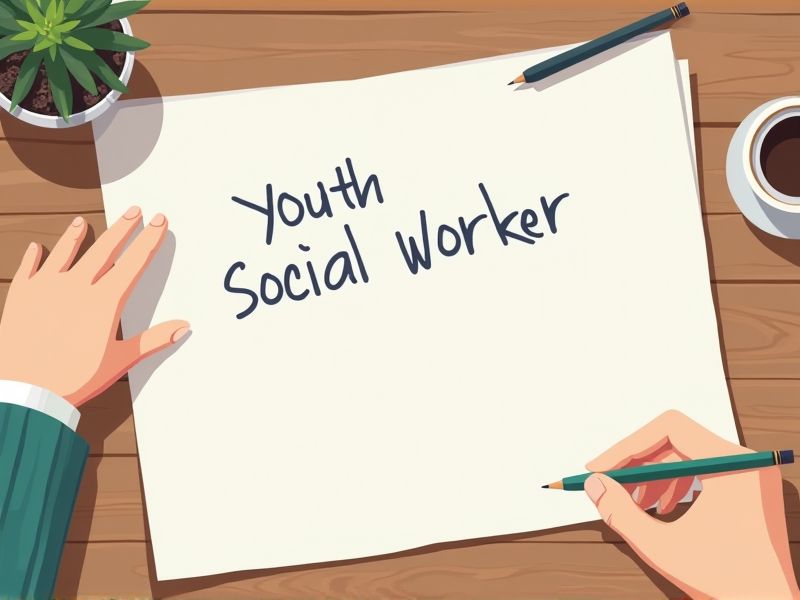
Youth social workers tackle complex issues affecting young individuals, requiring them to be well-equipped with specific skills and knowledge. Certifications ensure these professionals are prepared to address diverse needs, improve their intervention strategies, and maintain professional standards. With the right certifications, social workers gain credibility and can navigate legal and ethical landscapes effectively. Here are vital certifications you may need for a career in youth social work.
Licensed Clinical Social Worker (LCSW)
A Licensed Clinical Social Worker (LCSW) possesses advanced skills in assessing and addressing the complex emotional and psychological needs of youth, which enhances the effectiveness of interventions. The LCSW's specialized training in therapeutic modalities allows for more tailored support, which can lead to improved mental health outcomes for young individuals. The licensing requirement ensures adherence to ethical guidelines, providing a safer environment for vulnerable youth. Moreover, their expertise in coordinating with other social services ensures comprehensive care, addressing both immediate and long-term needs of the youth.
Certified Social Work Case Manager (C-SWCM)
A Certified Social Work Case Manager (C-SWCM) is essential for a youth social worker because it ensures adherence to standardized practices, enhancing the quality of support provided to young individuals. This certification reflects specialized training and understanding in case management, enabling more targeted and effective interventions. By possessing a C-SWCM, youth social workers are better equipped to handle complex social issues, which can lead to improved outcomes for at-risk youth. The credential also fosters trust and credibility among clients and stakeholders, reinforcing confidence in the support system.
Certified Youth Advocate (CYA)
Certified Youth Advocates are essential for youth social workers because they provide specialized training tailored to the unique challenges and needs of young people. This certification equips them with skills to effectively address issues such as mental health, substance abuse, and juvenile justice. A Certified Youth Advocate can bridge communication gaps, ensuring that young voices are heard in decision-making processes. Their expertise enhances the social worker's ability to develop personalized intervention plans that foster positive youth development.
Trauma-Focused Cognitive Behavioral Therapy (TF-CBT) Certification
Earning a Trauma-Focused Cognitive Behavioral Therapy (TF-CBT) certification equips a youth social worker with specialized skills to effectively address trauma in children and adolescents, leading to more successful therapeutic outcomes. TF-CBT certification ensures that social workers can apply evidence-based techniques specifically designed for trauma recovery, which is crucial given the high prevalence of trauma in youth populations. Certified social workers are more adept at recognizing and mitigating the long-term psychological impact of trauma, promoting emotional and mental health resilience in young clients. The certification enhances professional credibility and trust, which can improve community engagement and support for the social worker's initiatives.
Crisis Intervention Certification
Youth social workers face complex situations that require quick and informed decision-making. Crisis intervention certification equips them with the skills to effectively manage and de-escalate high-stress scenarios. This training enhances their ability to support and protect vulnerable youth, reducing potential harm. Certified social workers are more proficient in guiding young individuals through critical moments, fostering better outcomes.
Mental Health First Aid Certification
Youth social workers often encounter young individuals facing mental health challenges, and a Mental Health First Aid Certification equips them with essential skills to recognize and respond to these issues. This certification enhances their ability to intervene early, which can prevent the escalation of mental health problems. Trained social workers can provide a supportive environment, aiding in the reduction of stigma surrounding mental health discussions. By being prepared, they contribute to improved overall outcomes for youth, promoting a healthier community.
Child Welfare Certification
Child Welfare Certification is essential for youth social workers to ensure they possess the specialized skills to address the unique challenges faced by children in need. This certification increases the credibility of social workers, which can lead to improved trust from both families and communities. As a result of having certified professionals, the likelihood of successful intervention and support for at-risk youth increases significantly. Data shows that trained and certified social workers are more effective in advocating for and implementing child welfare policies that prioritize the best interests of the child.
Certified Community Outreach Worker (CCOW)
Youth require specialized support to navigate complex social issues; thus, a Certified Community Outreach Worker (CCOW) provides tailored resources and guidance. When CCOWs engage directly with communities, barriers such as trust and access to services are effectively reduced. Their certification ensures they possess the necessary skills to address diverse youth needs, yielding better outcomes. Data reflects improved community well-being and reduced youth delinquency when CCOWs are involved in social work initiatives.
Child and Adolescent Mental Health Specialist Certification
Youth social workers often encounter complex mental health issues among their clients. Acquiring a Child and Adolescent Mental Health Specialist Certification equips them with necessary skills to effectively assess and address these challenges. This certification broadens their understanding of developmental and psychological factors specific to younger populations. Certified social workers can provide more comprehensive care, potentially leading to better outcomes for the mental health of the youth they serve.
Certified Trauma Specialist Certification
The prevalence of trauma among youth populations often results in complex psychological challenges that general training might not adequately address. Certified Trauma Specialist Certification equips social workers with specific skills to recognize and respond to trauma-related issues effectively. This specialized knowledge enhances their ability to implement evidence-based interventions, improving outcomes for affected youth. As trauma exposure can impact long-term development, certified specialists contribute to more resilient and thriving communities.
Summary
When you earn certifications as a Youth Social Worker, you enhance your professional credibility, leading to increased trust from clients and stakeholders. Certifications often result in better job opportunities and potentially higher salaries as employers value specialized skills. Your enhanced knowledge equips you to implement more effective strategies for supporting youth. This professional development not only benefits your career but also positively impacts the communities you serve.
